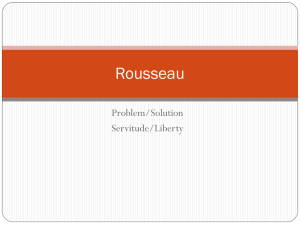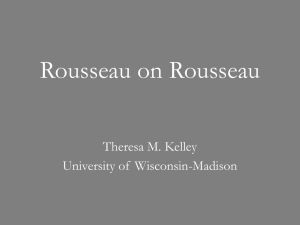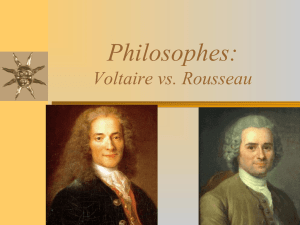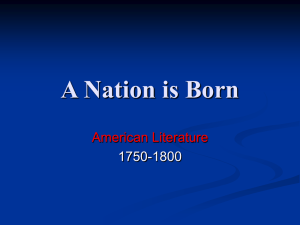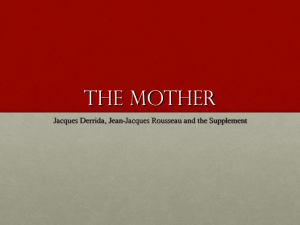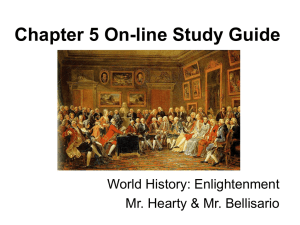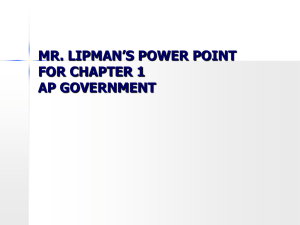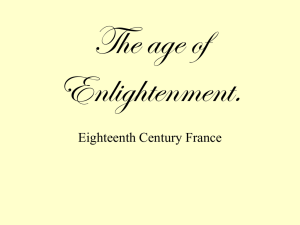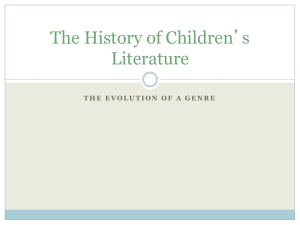JEAN-JACQUES ROUSSEAU
advertisement
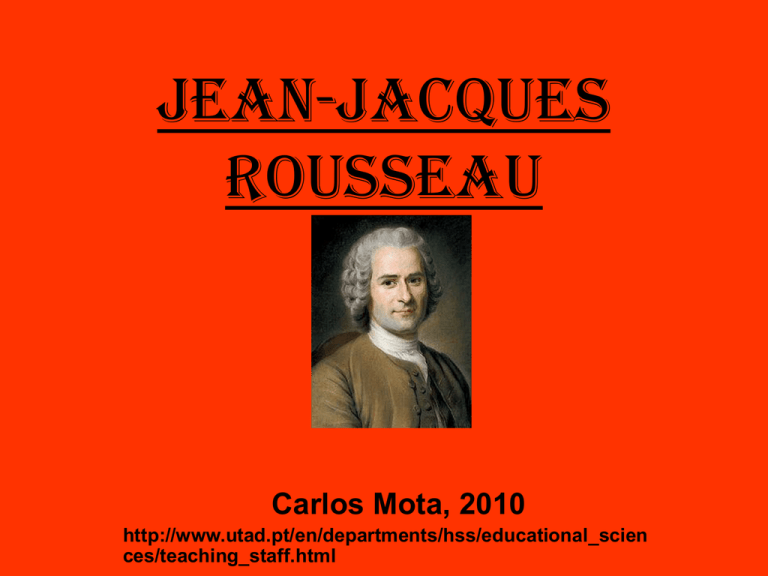
JEAN-JACQUES ROUSSEAU Carlos Mota, 2010 http://www.utad.pt/en/departments/hss/educational_scien ces/teaching_staff.html BIOGRAPHY Jean-Jacques Rousseau was born on June 28, 1712 in Geneva and died in 1778. Motherless at birth he had a difficult childhood. In 1746, at 28 years, Rousseau went first to Lyon, as tutor, then to Paris, where he met Diderot, Condillac and other thinkers linked to Enlightenment. He then lived a life with few resources. He collaborated in the creation of the 'Encyclopedia'; He was secretary of the French ambassador in Venice. He became known with the books “Discourse on Science and Arts”, and the “Discourse on the Origin of Inequality”. Rousseau's work We must consider him a pedagogue, philosopher and politician, whose ideas had and still have huge influence. After having Encyclopedists broken he important works: New Heloise, Social Contract and Émile. wrote with the his most His personal life contradicts his work. In fact, he had five children of Thérèse Levasseur who were sent to an orphanage. Years later, in his book Émile, he explains how to teach a child. He wrote constitutions for Corsica and for Poland, The Letters of the Mountain and the Confessions. His work was hotly contested, especially by the Church, and caused a great revolution in educational ideas. Rousseau inaugurated what might be called the “Pedagogical Way" of looking at childhood. For him, the child is the center of educational activity; The child is naturally “good”; It’s the society that corrupts mankind. Jean-Jacques Rousseau and his era: Rousseau was a man of the Modern age, but with typical ideas of the Contemporary Age. Many of his ideas match those of the French Revolution. In 1762, Rousseau wrote a book whith the name “Social Contract”. Main problem of that work: What is Human Nature? At the time Rousseau wrote that, it was common to think that the child: Has selfish tendencies; She’s anarchic; Has no moral conscience; Must be educated or will be "wild" = "bad." Rousseau argues that the child is GOOD Everything created by God is GOOD; Man corrupts in the struggle to have power, because for Rousseau, The "wild" individuals found by European navigators, were "good." This is the theory of the "Noble Savage." Social and Political Theory of ROUSSEAU: The struggle for power and goods causes all evils and corruptions. Fernando Piteira Santos, argued that: Rousseau did not want revolutionary manifesto; to write a And that he speak about the principles of the Declaration of Human Rights and the Citizen; The “Social Contract” can be seen as: A Theory of Contemporary Democracy covering: Equality, Freedom of citizens and The sovereignty of the people. Émile Novel published in 1762. Rousseau wants a social change made by education, arguing that the child develops affirming his being according to his own personal experience, because the society corrupts man. Rousseau education"; advocates a "natural In Émile he recounts the ideal education of a young man, accompanied by a teacher, away from the corrupt society. He argues that man must act according to their natural interests and not by imposition of external rules and artificial. Jean-Jacques Rousseau argues that the child is a being with its own characteristics, unlike the common ideas in his time who held that the child's education should be geared interests of adults and adulthood. to the For Rousseau, education is the child's free expression in his contact with life. The teacher should train the student to be a man, autonomous and free. Rousseau’s main Proposals: Teaching / Learning how to do; The practice precedes theory; Nature is the first teacher of the child; The first step is the sensory education, followed by the moral, intellectual, and then only after the training; The education must respect individual pace. New Heloise (brief reference) Published in 1761; Romantic story of an unhappy love; The man is formed and lives in society and family. Rousseau and Politics Rousseau only accepted the democratic society. The society of his age, being stratified, prevented the development of the good nature of man. Education as Politics Rousseau eventually regards education as a "totality", a policy, because for him, education can change the entire society. This view is an exaggeration, sometimes used against the educators themselves, as many aspects of society are outside the action of Education. Rousseau: Education and Society What happens is that the Society (S) embraces education (E), and the vision of Rousseau is exaggerated. Conclusions: Jean-Jacques Rousseau was limited by the time when he lived, but his contribution to education in the West was crucial. The view of the child as a specific being, never as a "miniature adult"; The focus of the educational process on the student; The value of manual work; The idea of educating women, Opened the way for new approaches on childhood. Such approaches would, later on be The “physician-hygienist” and the Psychological who have finish the vision of the child as a miniature adult human being. Although exaggerated, Rousseau played a key role in defending the rights of the Child (still ignored in many cases).



